 Giving thanks today both for the Trans & Gender Diverse (TGD) Affirming resolution yesterday at the triennial gathering of the Assembly of the Uniting Church in Australia, and, perhaps as or more important, for the overall spirit of discussion. This represents the first specific positive national affirmation of TGD folks in a mainstream Church in Australia and marks a step in the ever more necessary conversations and relationships between TGD & other queer people and communities of faith, not least those of diverse cultural backgrounds. See official Uniting Church Assembly report here...
0 Comments
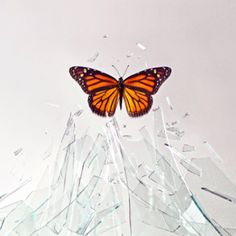 Firstly I acknowledge the Wurundjeri people as the traditional owners of this place, their elders past and present, and all First Nations peoples here today. I also particularly give thanks for this gathering to Garry Deverell, who, like my fellow speakers, so ‘gets’ where trans people are coming from and the urgent need for stronger intersectionality for love and justice. The great Black feminist lesbian writer and activist Audre Lorde, put it well: ‘there is no such thing as a single-issue struggle, because we do not live single-issue lives.’[1] Therefore, ‘we share a common interest… you do not have to be me in order for us to fight alongside one another. I do not have to be you to recognise that our wars are the same. What we must do is commit ourselves to some future that can include each other and to work toward that future with the particular strengths of our individual identities.’ One day I hope Australian Churches (and all elsewhere) will actively celebrate, support and promote gender diverse people - essentially passive, patchy ‘inclusion’ is so not good enough (as the UCA and the best parts of the ACA really should know by now). In the meantime, I encourage those who will, and can, to use the resources trans and other gender diverse people are producing - and personally, for the upcoming Trans Day of Remembrance this year (a Sunday - so no excuses church folk - 20 November) this year, I offer two new hymns (to well known traditional tunes) and a couple of the prayers I’ve created in the past
(a few more bits too here) - but hey, this is an opportunity to talk to trans and gender diverse folk and do the work of catching up with our gifts and genius, including so much that is life-giving in published form - Tina Beardsley, Austen Hartke, Shay (Shannon) Kearns, Rachael Mann, J Mase III, just to name a few for a start. Celebration and solidarity with trans people is part of the transformation and liberation of us all :-)  ‘The Body doesn’t lie’, they say. Well, certainly it can powerfully reveal and prompt us to the truth. Years ago, for example, I remember a yoga teacher asking me to curl up into the foetal position and give myself a hug, expressing my love for myself. But I simply couldn’t manage it. I took up position, but my arms just wouldn’t do it. Even when I actively exercised my mind to give myself the appearance of a hug, my body would not obey. For you cannot simply command love. It has to be received, acknowledged, and embodied. Or, to put it another way, love has to be breathed in and breathed out. All of this takes us to the heart of Jesus’ teaching about the commandments (in Mark 12.28-34), and to the core of the Biblical tradition… 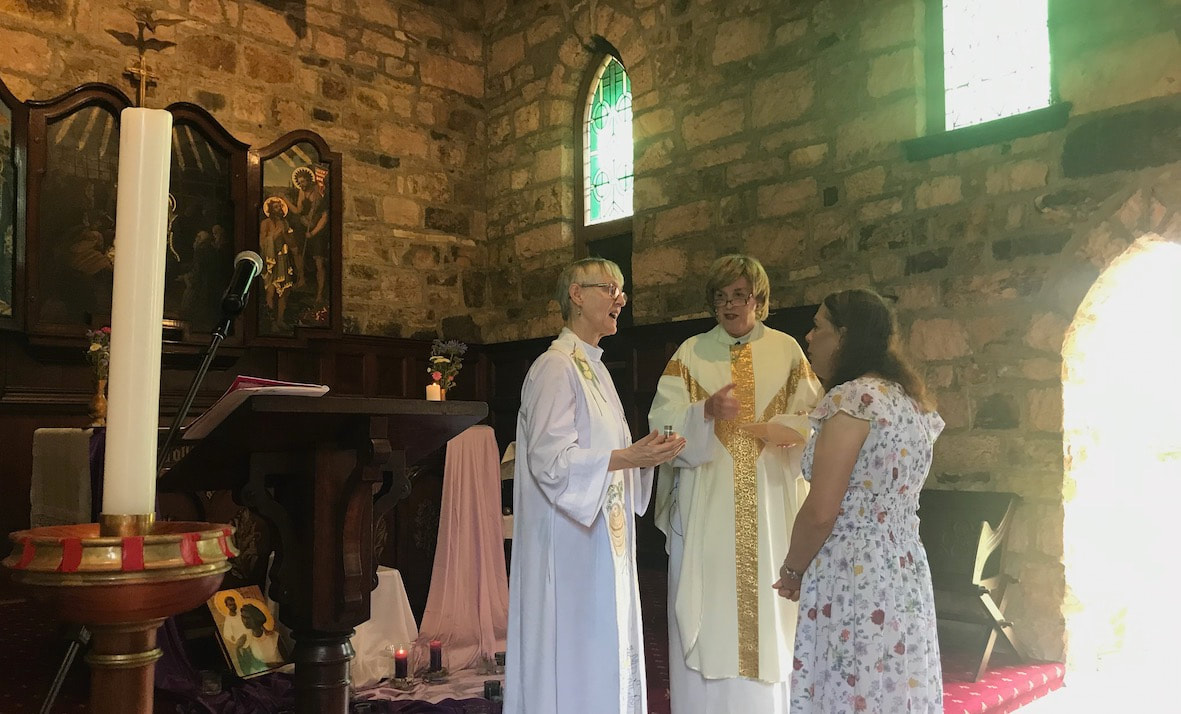 In the face of wider societal backlash, a fellow transgender Anglican priest in Australia (the Revd Sorèl Coward - pictured with my wife and I above) has been refused a license to officiate - this at a time when trans people need all the help we can get, and when we were explicitly excluded from national church ‘same sex marriage’ discussions (the ostensible reason for Sorèl’s rejection), This is such a confused decision by the Archbishop of Adelaide (who is also the Primate, i.e senior Australian bishop, of the Australian Anglican Church) that it is hard to know where to begin or end with the questions it raises. But now it is in the public sphere, I at least will ask some of them - and I hope as many people as possible will do so too. It is a direct consequence of official Church refusal to engage appropriately with the complexity of human gender and sexuality, and how little gender and sexually diverse people are even allowed to contribute our expert wisdom and experience. It is potentially another step to narrow sectarianism and such sad treatment of a lovely person who, ironically, has both the professional expertise and personal experience to help the Church grow in these matters. The affirming model of trans care is clearly vital to anyone with the eyes to see - and this certainly doesn’t involve using people’s long established loving marriages (blessed in Church for God’s sake!) against them. It is more than time for the Church and others to do all that is possible to address the deficit of transgender care and celebration. Initial coverage of this novel problematising of transgender Anglicans can be found here and here. My wife and I, as married Anglican priest in good standing, have written today to the Archbishop of Adelaide - a letter which can be found below (or downloaded here). 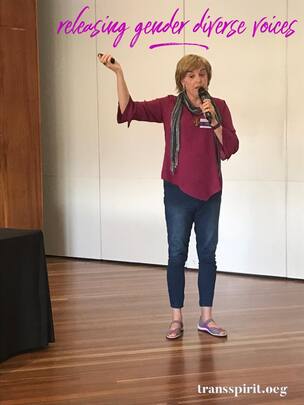 Delightful day yesterday with fellow researchers Ann Edwards and Katelyn Goopy (speech therapists from the ACU School of Allied Health), bringing together the main themes of findings from interviews recently with different gender diverse people - exploring what they/we themselves want for their/our voices and what voice means to them (personally, professionally, spiritually etc). Sadly - on a subject so important to many (and not just those trans women who suffer the pains of puberty voice change) - there has been so very little work done anywhere in the world based on gender diverse people’s own experience and hopes. Consequently professionals continue to miss the mark - as with other sections of society which presume to know who and what gender diverse people are and require. After further consultation with the terrific participants who shared their voices in this study, we hope the published results may help bring some change in both approaches to, and content of, much voice therapy - and, most of all, strengthen gender diverse people’s own advocacy and agency. 🙏 We continue to thank those who have contributed so helpfully to this small but significant study. May gender diverse people continue to evolve and express our gloriously diverse voices, and may we be heard and empower others in doing so ❤️ (photo from transgender people-led workshop at the Equal Voices conference in Melbourne 2018) One of the most encouraging aspects of the Australian theological scene is the work of the Australian Collaborators in Feminist Theologies. Based at the University of Divinity, Melbourne, this vital network has considerably inspired and supported me in recent times and will, I hope, continue to grow in strength and influence. From a transgender perspective, it is certainly a very positive community in which to be a part. Personally I am already thankful to this project and its leaders to have an essay (entitled 'From Footballs to Matildas? - Gender Diverse People and Theological Game Change') included in the forthcoming book Contemporary Feminist Theologies: Power, Authority, Love - part of Routledge's 'Gender, Theology and Spirituality' series. I am also pleased to share in the Horizons series of online conversations which the Collaborators run on a monthly basis. This month, I am myself a focal point, chatting with Dr Cath McKinney about intersectionality, not least the challenges and opportunities of gender diverse people within feminist developments (link to event here). Here below - and at this link - is a short reflection to stimulate thought and discussion, trying to move well beyond fruitless destructive controversies such as that recently stoked by J.K.Rowling. Our times, and people of all gender identities, call for genuine depth of greater connection, contemplation, and creativity...
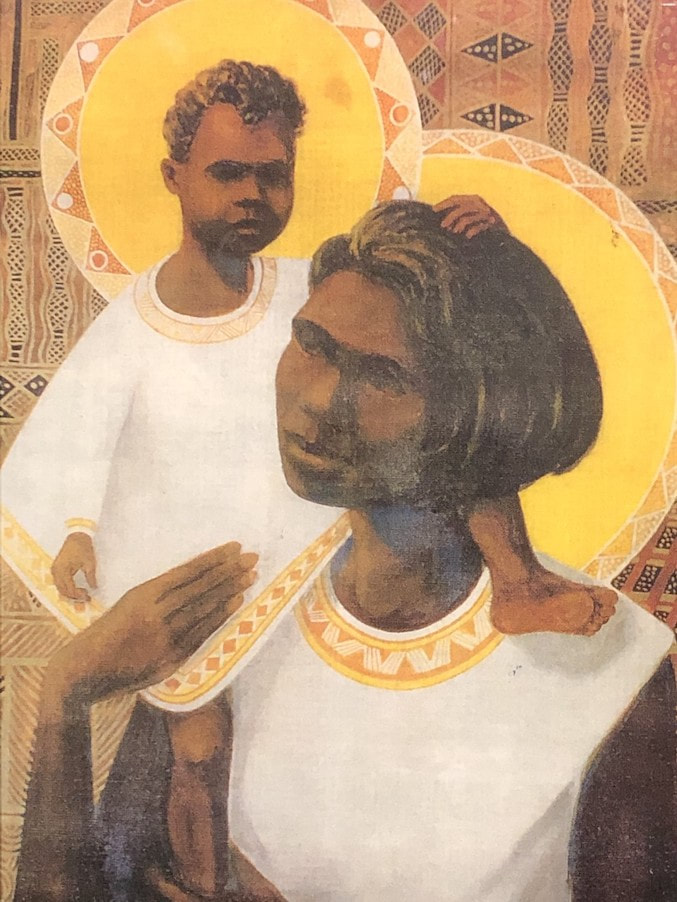 As my wife Penny and I approach our 35th wedding anniversary next month, we are increasingly aware of how our marriage has become one of God's delightful little prophetic jokes to prompt deeper loving awareness. The other day, for instance, we went to a shop in Brisbane to see if we could buy some dresses for our upcoming renewal of vows event. I found a splendid one I liked quite quickly and the shop assistant asked me if it was for a special occasion. 'Yes', I said, 'Penny and I are renewing our vows in a few weeks time. It will be our 35th wedding anniversary'. The assistant was very professional and just murmured 'how lovely'. For the next few minutes however it was very evident that the cogs were whirring in her brain. Clearly I 'passed' more than well enough for her to be considerably puzzled how two women could be marking 35 years of official marriage. Maybe she wondered if we came from some country she hadn't heard of which had quietly adopted marriage equality decades before others. Perhaps she pondered if there was some special lesbian rite she had never imagined. Whatever the case, as for others in society, and certainly within church circles, our fully sanctioned and richly flourishing marriage had stirred the pot. Once again Penny and I were a gentle loving challenge to preconceptions and an invitation to more expansive relationships and celebration of life... 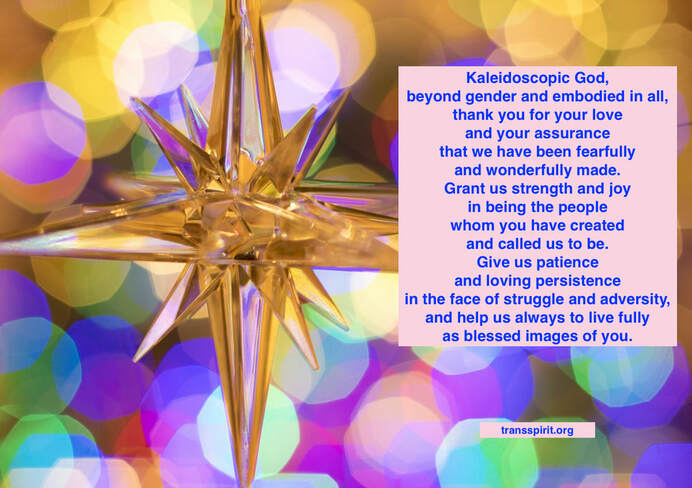 I've loved kaleidoscopes since I was a child. The first time I looked into one I felt my eyes were opened to so many new possibilities. For, in the days before computers and digital design, they were the nearest thing to re-shaping and re-colouring a child's world. Telescopes, and microscopes, could be fun too, but kaleidoscopes were the real magic. After all, a telescope, or microscope, can help focus, examination and perspective, but a kaleidoscope opens up the imagination. Whereas a telescope, or microscope, is essentially binary, and, at best, three dimensional, a kaleidoscope is full of changing elements. A telescope, or microscope, can indeed also disclose amazing aspects of the heavens or the tiniest details of life. A kaleidoscope however can open up the soul, nurturing engaged wonder in the interaction of eye and hand, and the power of human creation in the play of perception and desire, In other words, In its glistening, altering patterns and creative transitions, it can become an icon of spirituality, constantly re-defining identity. It is, if you like, a symbol and means of transfiguration. For a little child like me, knowing I was different, it certainly helped me sense that the world could be much more diverse and colourful than the bounds of simplistic explanation offered. It also encouraged me to realise that, as with a kaleidoscope, I might come to change the patterns of my world, and perhaps even - who knows how - my own body into a more glorious expression... 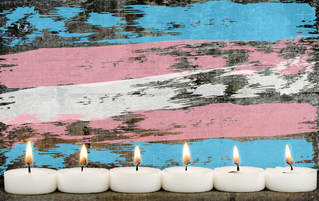 How will we respond, in this trans awareness month, to the backlash gender diverse people have been facing? In Australia the postal survey has been particularly difficult for trans and gender diverse people. We have suffered all that the LGBTI+ community as a whole has endured, as our lives, bodies and mental health have been put on the line. In addition however, we have experienced a powerful, determined and unprecedented coordinated attack on our very existence and identities, with very little scope for response. For, frequently ignoring the actual postal survey question altogether, the 'no' campaign has spent so much of its time and money on whipping up fear through attacks on us and associated 'issues' like the vital initiatives of Safe Schools. Understandably the 'yes' campaign has been reluctant to be drawn into this, preferring to stick to its clear strategy of addressing the substantive marriage issues. This has left many trans and gender diverse people, not only in a war zone with other LGBTI+ people, but feeling quite defenceless at times. For many of us have been strengthened and immensely grateful for the support of our lesbian, gay and bi sisters and brothers, and many allies. Yet general awareness has been set back in many quarters and momentum gained by those who oppose us. So how will we move forward again together?... |
AuthorThe Revd Dr Jo Inkpin: Archives
March 2024
Categories
All
|
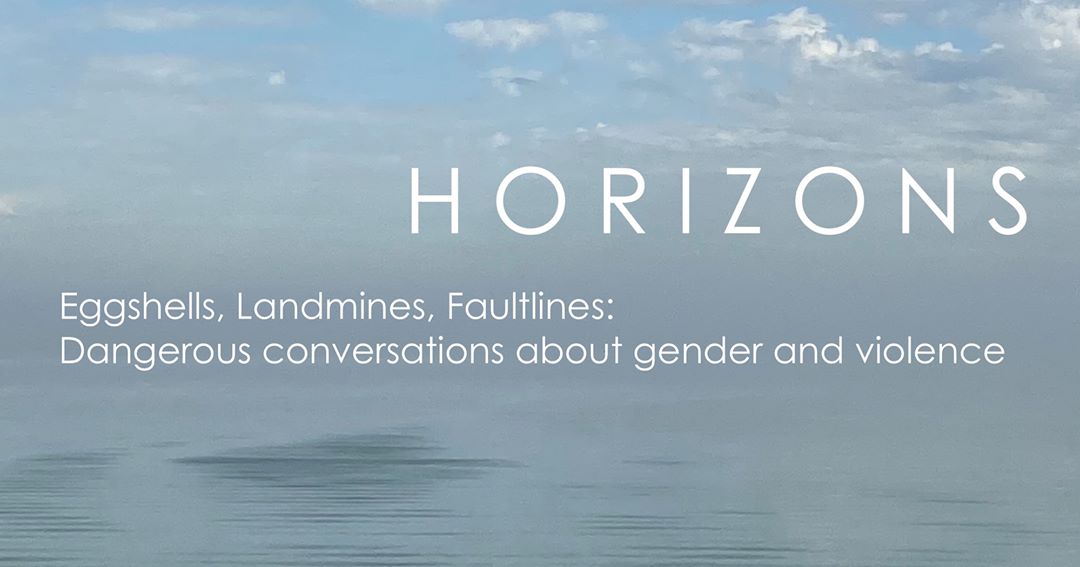
 RSS Feed
RSS Feed